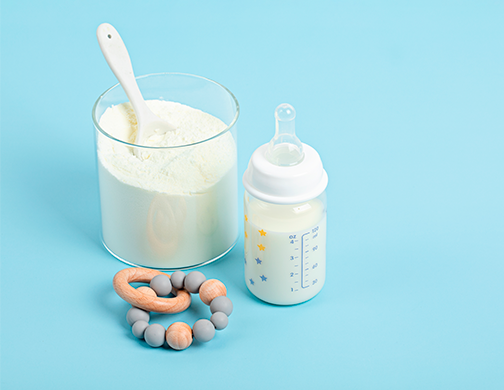Choosing the right baby formula for your child is one of the most important decisions you’ll make as a parent. While breast milk is the gold standard for infant nutrition, many parents rely on baby formula as an alternative or supplement. Two popular options are cow’s milk-based and soy-based baby formulas. Understanding the differences between these two can help you make an informed choice for your baby’s nutritional needs.
Cow’s Milk-Based Baby Formula
Cow’s milk-based baby formula is the most commonly used type of infant formula. It is designed to mimic the composition of breast milk by altering cow’s milk proteins to make them more digestible for babies. This formula usually includes:
- Lactose as the primary carbohydrate.
- Whey and casein proteins, adjusted to suit an infant’s digestive system.
- Added vitamins and minerals to meet a baby’s developmental needs.
Benefits of Cow’s Milk Formula:
- Nutritional Balance: It closely resembles the natural nutritional profile of breast milk.
- Availability: It is widely available and comes in a variety of brands.
- Taste: Many parents find that babies adapt well to its taste.
However, cow’s milk-based baby formula may not be suitable for infants with lactose intolerance or cow’s milk protein allergies.
Soy-Based Baby Formula
Soy-based baby formula is a plant-based alternative made from soy protein. It is an excellent option for babies who cannot tolerate lactose or have a cow’s milk protein allergy. Additionally, it is often chosen by parents who prefer a vegetarian or vegan diet for their child.
Key Features of Soy Formula:
- Lactose-Free: Ideal for babies with lactose intolerance.
- Vegetarian-Friendly: Made entirely from plant-based ingredients.
- Fortified with essential nutrients like calcium, iron, and vitamins to support growth.
Benefits of Soy-Based Formula:
- Allergy Relief: Effective for babies with cow’s milk protein allergies.
- Digestive Comfort: Helps reduce symptoms like gas, bloating, or diarrhea in lactose-intolerant infants.
- Ethical Preference: Aligns with vegetarian or vegan family values.
While soy-based baby formula is a lifesaver for many families, it is not recommended for premature infants or those with specific medical conditions due to potential concerns about phytoestrogens in soy.
Choosing the Right Baby Formula
When deciding between cow’s milk-based and soy-based baby formulas, consider the following factors:
- Allergies and Intolerances: If your baby shows signs of discomfort, such as excessive crying, rashes, or digestive upset, consult a pediatrician to determine if a formula change is necessary.
- Dietary Preferences: Soy formula may align better with specific dietary or ethical beliefs.
- Doctor’s Advice: Always seek professional guidance to ensure your baby’s nutritional needs are met.
Conclusion
Both cow’s milk-based and soy-based baby formulas are designed to provide the essential nutrients infants need for healthy growth and development. The choice depends on your baby’s specific needs and any medical or dietary considerations. Whichever baby formula you select, ensuring your child receives balanced nutrition and thrives during their early years is the ultimate goal. Always consult with your pediatrician before making any changes to your baby’s diet.

